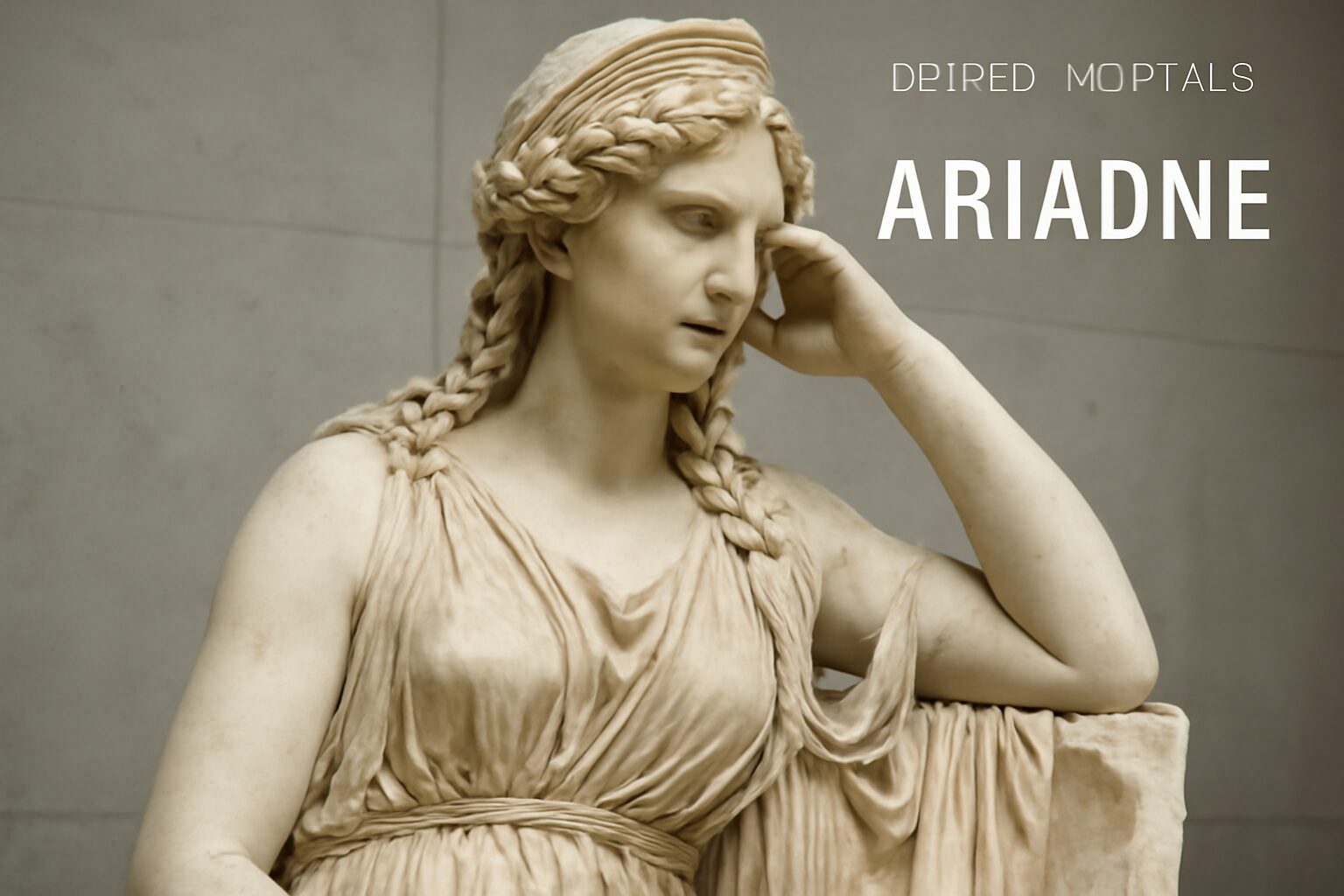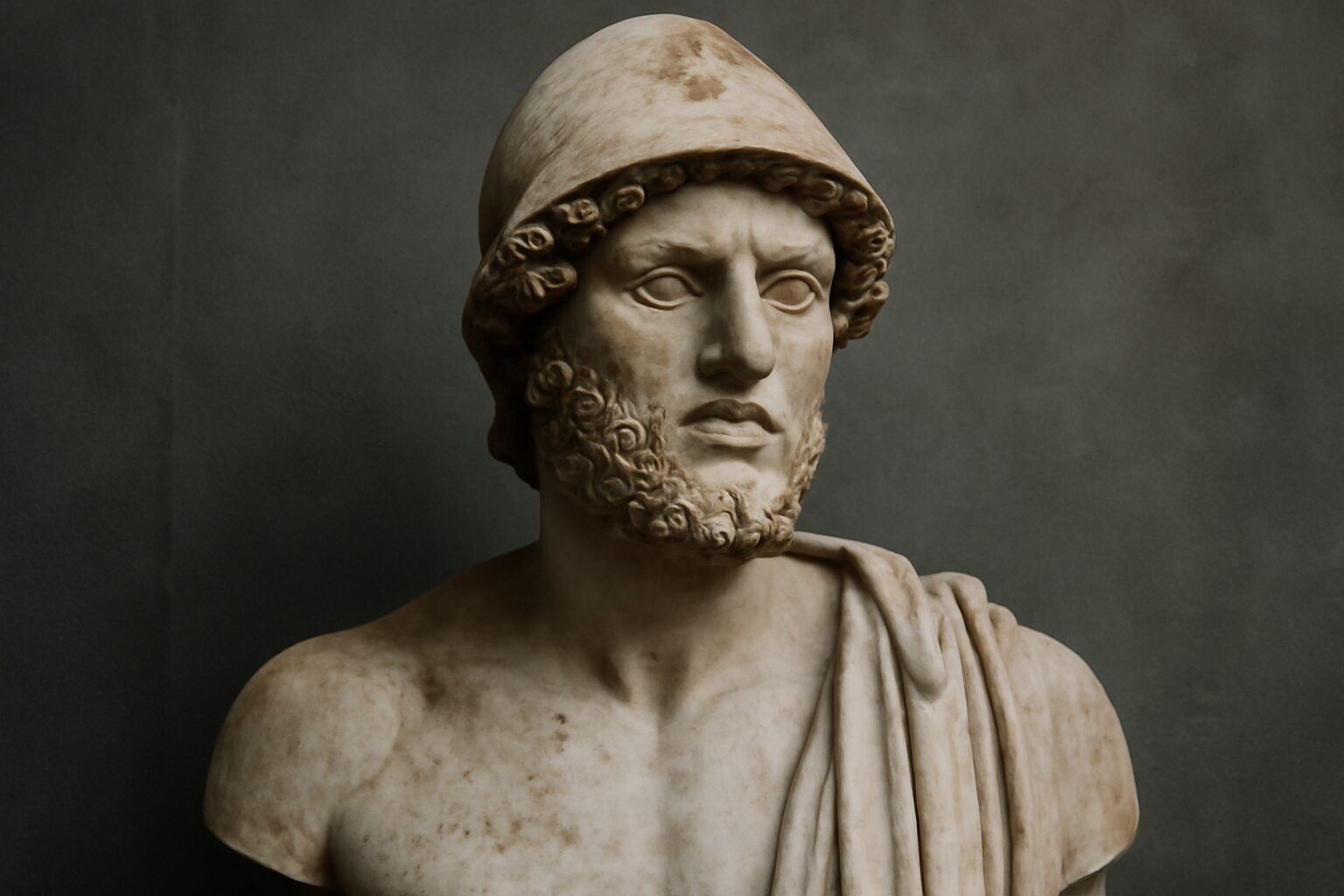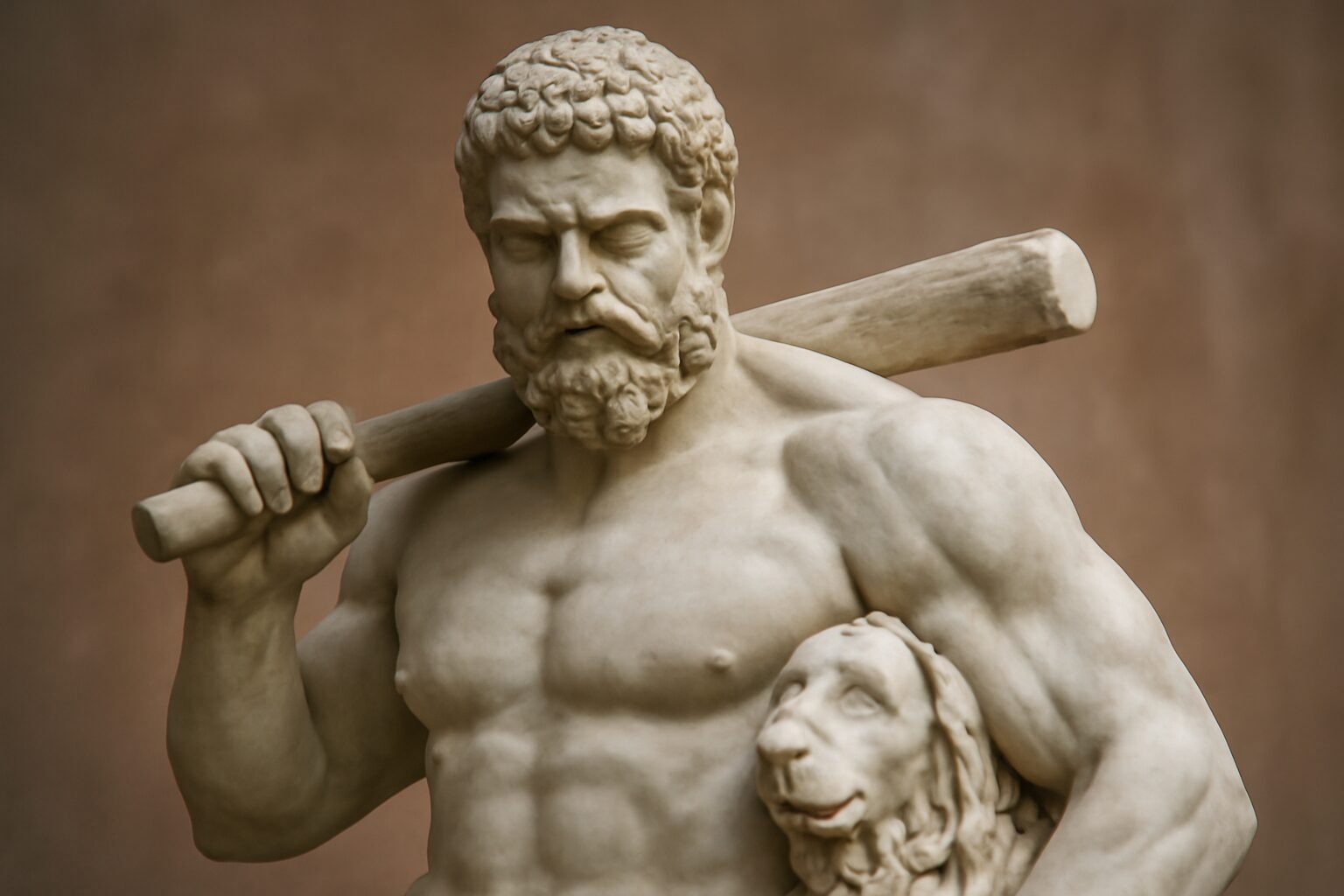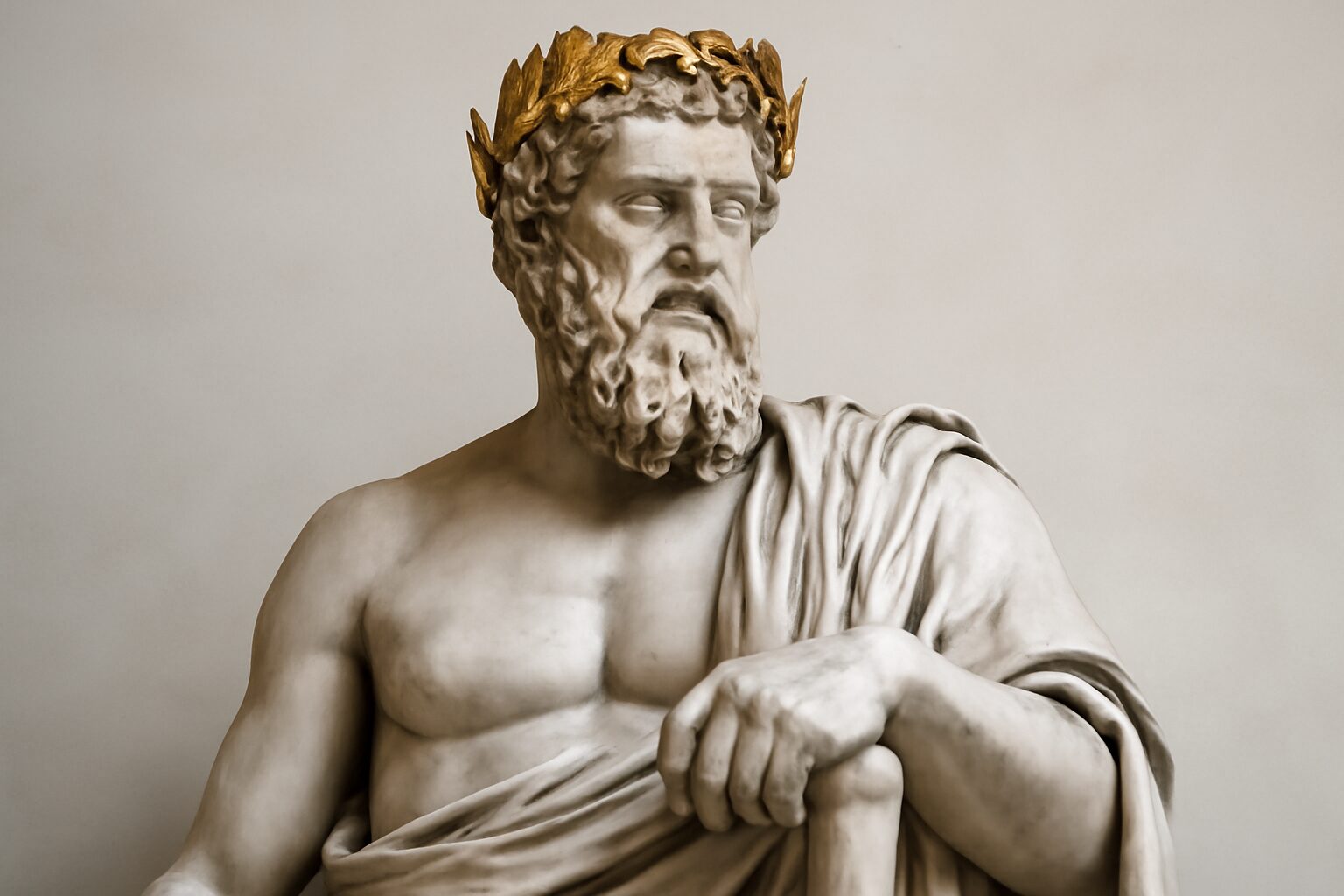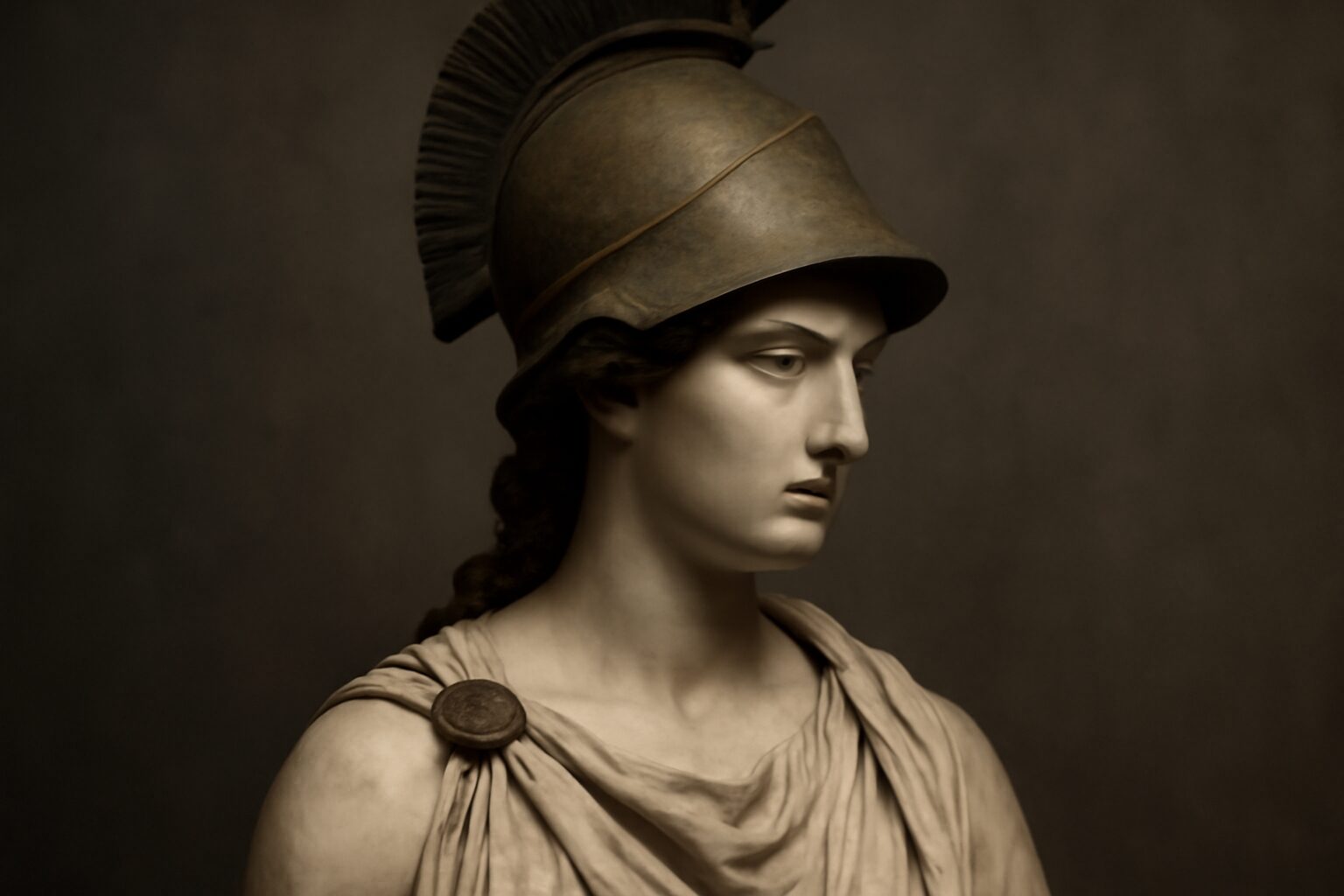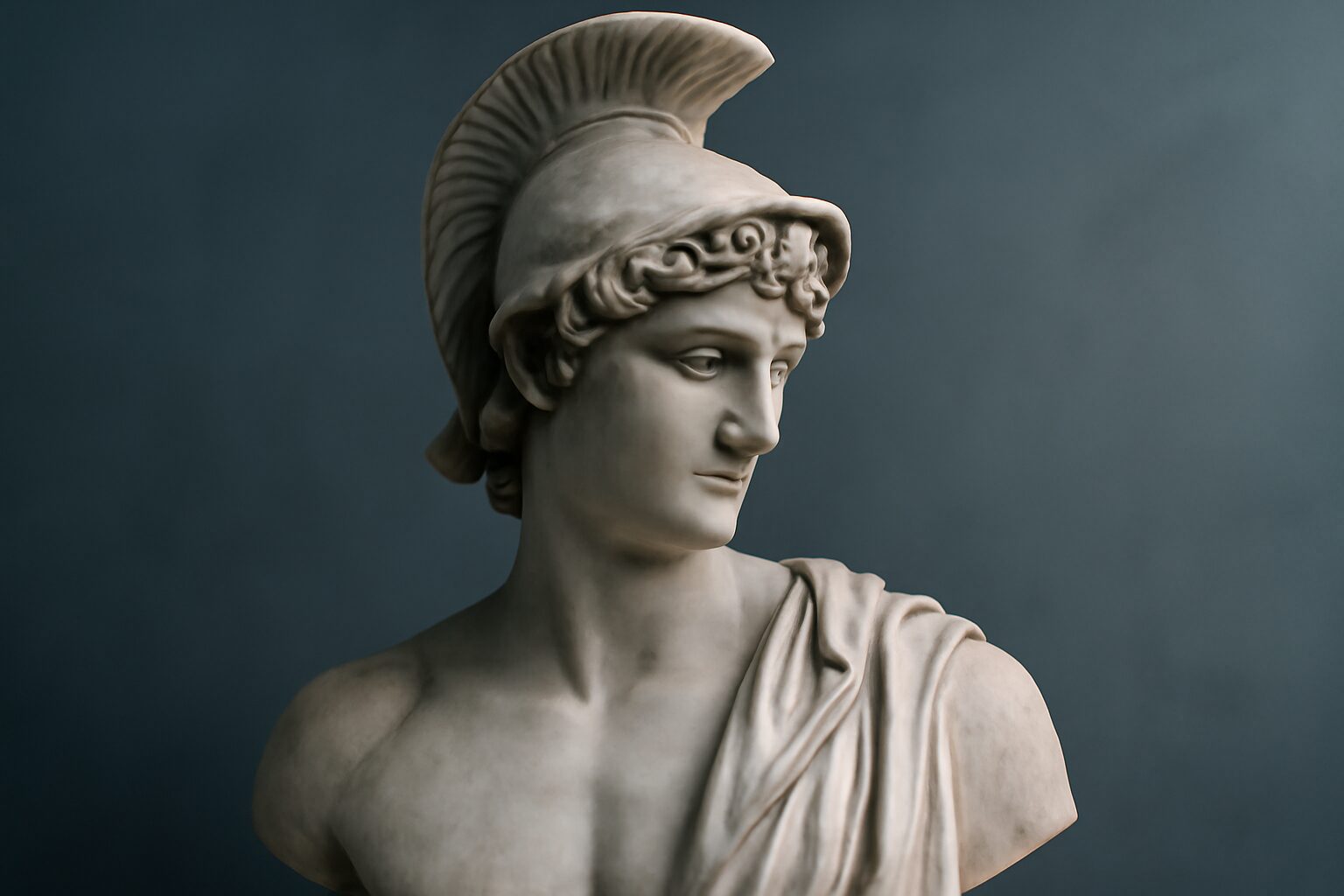Aeacus: The Just King of Aegina
In Greek mythology, Aeacus (or Aiakos) was a mortal son of Zeus and the nymph Aegina, renowned for his wisdom, piety, and fairness. His life bridged the mortal and divine realms, earning him a unique place among Greek heroes and kings.
Mythology and Origins
Born on the island of Oenone (later renamed Aegina after his mother), Aeacus was raised alone after Hera, jealous of Zeus's affair, sent a plague that wiped out the island's population. According to legend, Zeus transformed the island's ants into humans—the Myrmidons—to repopulate Aeacus's kingdom. These fierce warriors would later fight under Aeacus's grandson, Achilles, in the Trojan War.
Powers and Virtues
Though mortal, Aeacus was favored by the gods for his unwavering sense of justice. His reputation was so great that after his death, he became one of the three judges of the dead in the Underworld, alongside Minos and Rhadamanthus. His role was to weigh the souls of the deceased, determining their fate in the afterlife—a testament to his legendary fairness.
Relationships and Legacy
Aeacus married Endeis, with whom he fathered the heroes Peleus (father of Achilles) and Telamon (father of Ajax). His descendants played pivotal roles in Greek epics, linking him to the Trojan War's greatest warriors. Later, he married the Nereid Psamathe, who bore him Phocus, a son tragically killed by his half-brothers, leading to Aeacus's exile of Peleus and Telamon.
Significance in Greek Culture
Aeacus symbolized divine justice and the ideal ruler. The Aeginetans worshiped him as a local hero, and his judgment in the Underworld reinforced Greek beliefs about morality and the afterlife. His lineage tied him to key myths, making him a cornerstone of heroic genealogy. Even in death, Aeacus's legacy endured—a mortal whose virtue earned him a place among the gods.
Alternative Names for Aeacus (Aiakos)
God Name: Aiakos (Greek)
The original Greek name of the god, meaning 'mourner' or 'lamenter,' derived from his role as a judge of the dead in the underworld.
God Name: Aeacus (Roman)
The Latinized version of the Greek name Aiakos, used in Roman mythology to refer to the same deity, maintaining his role as a judge in the afterlife.
God Name: Judge of the Dead (Greek)
A descriptive title for Aeacus, referencing his mythological role as one of the three judges in the underworld, alongside Minos and Rhadamanthus.
God Name: Son of Zeus (Greek)
A patronymic title highlighting Aeacus's divine lineage as the son of Zeus and the nymph Aegina.
God Name: Ruler of Aegina (Greek)
A title referencing Aeacus's role as the mythical king of the island of Aegina, where he was born and ruled.
Tales about Aeacus (Aiakos)
Aeacus and Zeus: The Judgment of the Mortal King
In the golden age of Aeacus, the island of Aegina was renowned for its piety and justice. When a devastating drought struck Greece, the people turned to the oracle, which declared that only the prayers of the most righteous mortal could bring rain. The Greeks sought out Aeacus, whose fairness had earned him favor with Zeus.
Zeus, moved by the sincerity of Aeacus's prayers, sent a torrential downpour that ended the famine. To honor this devotion, Zeus transformed the ants of Aegina into humans, creating the Myrmidons—a fierce and loyal race who would later fight under Achilles. This act cemented Aeacus's reputation as a judge so virtuous that even the gods trusted his discernment. His unwavering Eusebeia (piety) and commitment to Dikaiosyne (justice) were qualities also embodied by Soteria (safety) and Homonoia (concord), reflecting the divine order he upheld.
Aeacus and Poseidon: The Builder of Troy's Walls
When Apollo and Poseidon were sentenced to serve King Laomedon of Troy, they undertook the construction of the city's massive walls. Poseidon, seeking assistance from a mortal of unparalleled skill and integrity, summoned Aeacus to aid in the endeavor.
Aeacus labored alongside the gods, his section of the wall so impeccably built that it was said to be invulnerable. When Laomedon refused to pay the agreed reward, Poseidon sent a sea monster to ravage Troy, but he spared the portion built by Aeacus, declaring it a testament to mortal excellence honored by the divine. This collaboration highlighted virtues like Techne (craftsmanship) and Pistis (trust), while the ensuing conflict invoked Poine (retribution) for the broken oath.
Frequently Asked Questions
Who was Aeacus (Aiakos) in Greek mythology?
Aeacus was a mortal king of the island of Aegina who, due to his piety and fairness, was granted immortality by the gods and became one of the three judges of the dead in the Underworld, alongside Minos and Rhadamanthus.
Why was Aeacus made a judge in the Underworld?
Aeacus was known for his extreme piety and just rule as a king. The gods, particularly Zeus, respected his moral integrity so much that after his death, they granted him a divine role to judge the souls of the dead based on their earthly deeds.
What can we learn from the story of Aeacus?
Aeacus' story teaches the value of justice, piety, and moral integrity. It shows that in Greek mythology, even mortals could earn divine honors through virtuous behavior, emphasizing the cultural importance of ethics and fairness.
How does the myth of Aeacus apply to modern life?
The myth highlights timeless themes like the rewards of integrity and the importance of fairness in leadership. It encourages people to strive for moral excellence, as virtues like justice and piety remain respected qualities today.
Was Aeacus related to any other Greek gods or heroes?
Yes, Aeacus was the son of Zeus and the nymph Aegina. He was also the grandfather of the famous heroes Achilles and Ajax, connecting him to key figures in Greek mythology like the Trojan War warriors.



